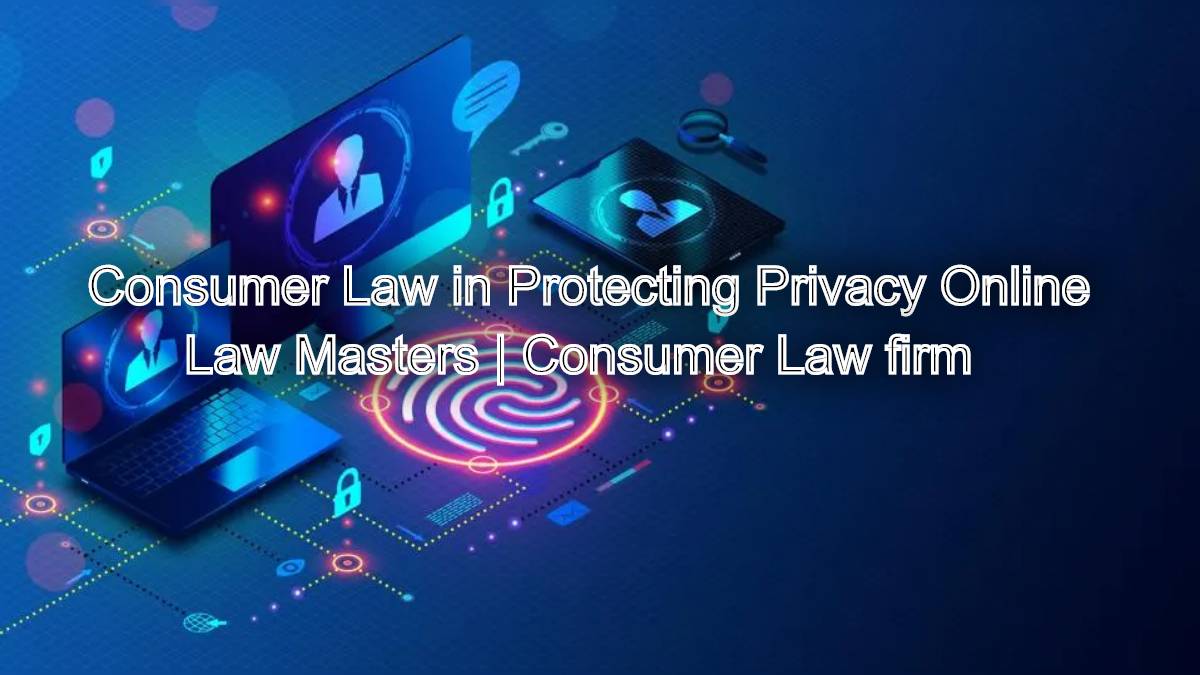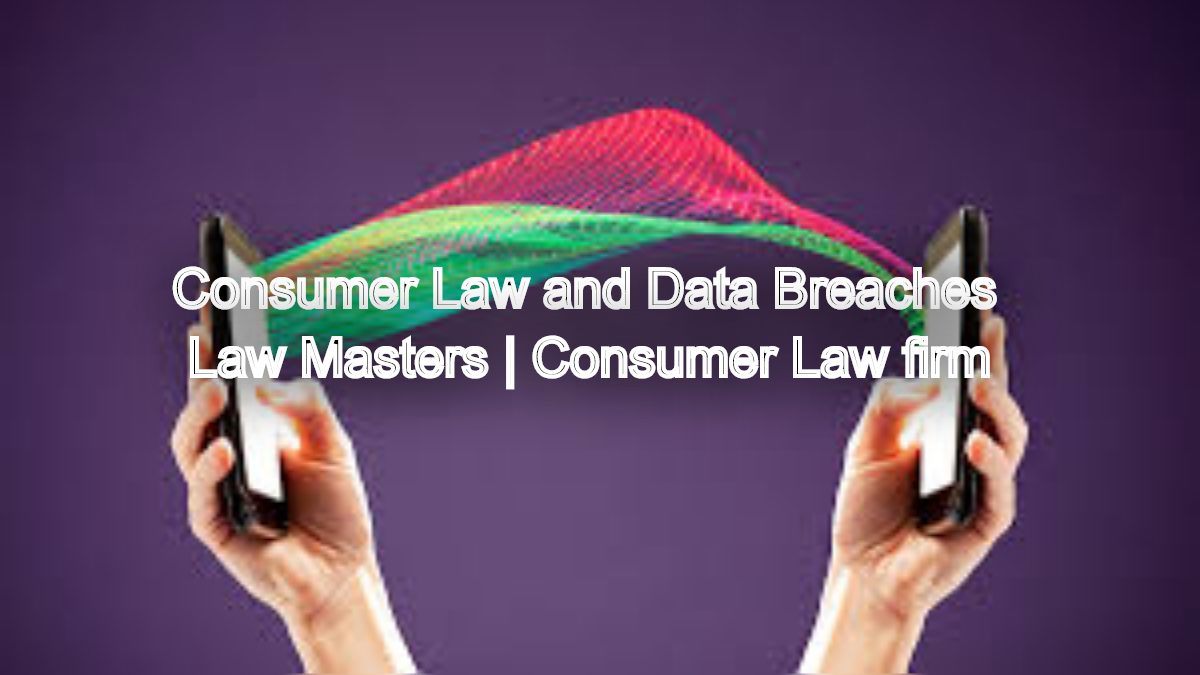The digital age has ushered in unprecedented convenience and connectivity.1 However, this convenience comes at a cost – our privacy. With every online transaction, every social media post, and every website visit, we leave behind a trail of personal data. This data, in the wrong hands, can be misused, exploited, and even weaponized.2 Consequently, the role of consumer law in safeguarding our online privacy has become increasingly crucial.
The Role of Consumer Law in Protecting Your Privacy Online: Law Masters | Consumer Law Firm
The Evolving Landscape of Online Privacy
The internet, while a powerful tool, presents numerous privacy challenges.3 Firstly, there is the issue of data collection. Companies, both large and small, collect vast amounts of personal data, including browsing history, location data, and even biometric information.4 This data is often collected without adequate notice or consent from consumers.
Secondly, there is the concern of data misuse. Collected data can be used for targeted advertising, which can be intrusive and manipulative.5 Moreover, there is the risk of data breaches, where sensitive personal information can be accessed and exploited by cybercriminals.6 This can lead to identity theft, financial fraud, and other serious consequences.7
The Role of Consumer Law
Consumer law plays a vital role in addressing these challenges. By providing consumers with legal rights and remedies, it empowers them to protect their privacy online.8
- Data Protection Laws: Many jurisdictions have enacted data protection laws, such as the General Data Protection Regulation (GDPR) in Europe and the California Consumer Privacy Act (CCPA) in the United9 States.10 These laws grant individuals greater control over their personal data, including the right to access, correct, and delete their data.11
- Privacy Policies: Consumer law often mandates that companies provide clear and concise privacy policies that disclose how they collect, use, and share consumer data.12 This transparency allows consumers to make informed decisions about how their data is being used.13
- Data Security Standards: Consumer law may also impose data security standards on businesses, requiring them to implement appropriate technical and organizational measures to protect consumer data from unauthorized access and breaches.14
- Enforcement Mechanisms: Consumer law provides enforcement mechanisms, such as fines and penalties, to deter companies from engaging in unfair or deceptive privacy practices.15
Navigating the Complexities of Online Privacy
Despite the existence of consumer protection laws, navigating the complexities of online privacy can be challenging. Consumers may not fully understand their rights, or they may not know how to exercise them effectively.
This is where experienced legal counsel becomes invaluable. Law Masters, a leading consumer law firm, provides expert legal guidance and representation to individuals seeking to protect their online privacy.16 Our team of skilled attorneys specializes in:
- Data breach litigation: We represent individuals who have been affected by data breaches, helping them recover damages and seek compensation for their losses.17
- Privacy policy review and analysis: We review and analyze company privacy policies to ensure they comply with applicable laws and adequately protect consumer rights.
- Enforcement of consumer privacy rights: We assist clients in enforcing their rights under data protection laws, such as the right to access, correct, and delete their data.
- Negotiation and settlement of privacy disputes: We negotiate with companies on behalf of our clients to resolve privacy disputes and obtain favorable outcomes.
Why Choose Law Masters?
- Expertise and Experience: Our attorneys possess in-depth knowledge and extensive experience in consumer law, data privacy, and cybersecurity.
- Personalized Attention: We understand that every client’s situation is unique. We take the time to understand your specific concerns and provide personalized legal advice tailored to your individual needs.
- Strong Advocacy: We are passionate advocates for our clients’ rights. We will tirelessly fight for your best interests and ensure that your privacy is protected.
- Commitment to Client Satisfaction: We are committed to providing exceptional legal services and ensuring your complete satisfaction with our representation.
Frequently Asked Questions
Collection:
Data Misuse:
Data Breaches:
Data Protection Laws:
Privacy Policies:
Data Security Standards:
Enforcement Mechanisms: Laws provide enforcement mechanisms, such as fines and penalties, to deter companies from engaging in unfair or deceptive privacy practices.
Expertise and Experience: Law Masters possesses in-depth knowledge and extensive experience in consumer law, data privacy, and cybersecurity.
Personalized Attention: The firm provides personalized legal advice tailored to individual client needs.
Strong Advocacy: Law Masters vigorously advocates for clients’ rights and ensures their privacy is protected.
Comprehensive Legal Services: The firm offers a range of services, including data breach litigation, privacy policy review, and enforcement of consumer privacy rights.
Access: The right to access the personal data that a company has collected about you.
Correction: The right to correct inaccurate or incomplete personal data.
Erasure (“Right to be Forgotten”): The right to have your personal data deleted under certain circumstances.
Data Portability: The right to receive your personal data in a portable format so you can easily transfer it to another company.
Right to Object: The right to object to the processing of your personal data for certain purposes, such as direct marketing.
Review and understand privacy policies.
Be mindful of the data you share online.
Use strong passwords and enable two-factor authentication.
Keep your software updated.
Be cautious of phishing scams.
Consider using privacy-enhancing technologies such as VPNs and ad blockers.
Conclusion
In the digital age, protecting your online privacy is more crucial than ever. By understanding your rights and seeking the assistance of experienced legal counsel, you can effectively safeguard your personal information and navigate the complexities of the online world with confidence. Law Masters is dedicated to empowering consumers to protect their privacy rights. We are here to guide you through the legal process and ensure that your interests are fully protected.
Read More
- Understanding Your Consumer Rights: A Comprehensive Guide
- What are the responsibilities of businesses under consumer Law?
- The Importance of Reading and Understanding Terms of Service and Privacy Policies
- Tips for Safeguarding Your Personal Information Online
- Consumer Law and Data Breaches: Steps to Take After Your Personal Information Is Compromised
- Department of Electronics and Information Technology (DeitY):



